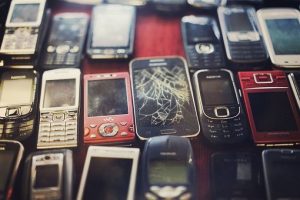The combination of enthusiastic amateurs, repair cafés and new laws could help tackle the world’s growing mountains of broken electronics…
“The Environment Bill… will facilitate the changes that are needed.”
.
 We have a particular problem with e-waste:
We have a particular problem with e-waste:
Doing more to fix the e-waste problem – Vision Group for Sidmouth
.
It seems that the government is starting to create legislation to require things to last longer.
The Environmental Audit Committee has just produced a report – in which it points to government successes but urges more action:
Electronic Waste and the Circular Economy – Environmental Audit Committee – House of Commons
.
In one section of the report, it highlights the UK’s engineering past as a springboard for action:
109. The UK has a long history of engineering, and the public wants to be able repair their products. When products are designed, durability and repairability should be key considerations. The Government must enshrine the right to repair in law, enforcing access to (1) repair manuals; (2) access to affordable spare parts for products; and (3) ability to repair products without repairers needing access to physical or software tools specifically designed to be a barrier to independent servicing or repair.
Electronic Waste and the Circular Economy – Environmental Audit Committee – House of Commons
.
And last month, in the Lords Rosie Boycott asked about what steps the governement are taking to encourage (1) a circular economy, and (2) the elimination of waste.
She received this answer from Minister Zac Goldsmith:
Reusing and repairing products saves people money. Low-income households saved, we believe, £468 million in 2019 through reuse and repair. Widespread adoption and circular economy business models have the potential to add around £75 billion in gross value added to the UK economy, according to WRAP. It also believes that moving to a more circular economy, including recycling, could create around half a million jobs across all skill levels and regions in the UK. This is central to what we are attempting to achieve through our waste strategy and via the Environment Bill, which will facilitate the changes that are needed.
.
This is something the Ellen MacArthur Foundation has been campaigning for some time now:
Circular-Consumer-Electronics-FV.pdf
.
And it looks as though a lot of people are behind this push – as this piece from the BBC last week shows:
The combination of enthusiastic amateurs, repair cafes and new laws could help tackle the world’s growing mountains of broken electronics…
In an effort to defuse this vast amount of avoidable waste, France’s National Assembly last year voted to introduce an index of “repairability” ratings for appliances such as washing machines, lawnmowers, televisions and smartphones. In doing so, the French government hopes to increase the electronics repair rate to 60% within five years…
In Austria, the government halved the VAT on certain repairs to 10% and a number of states introduced a voucher system for up to €100 (£90/$120) to fund repairs. In Hungary, the government extended the warranty period for certain appliances up to three years. Further afield, Australia has launched a report into the “right to repair”, with the findings due in February. Some US states have had repair rights in place for a decade, though mostly focusing on vehicles.
The country rejecting throwaway culture – BBC Future
.